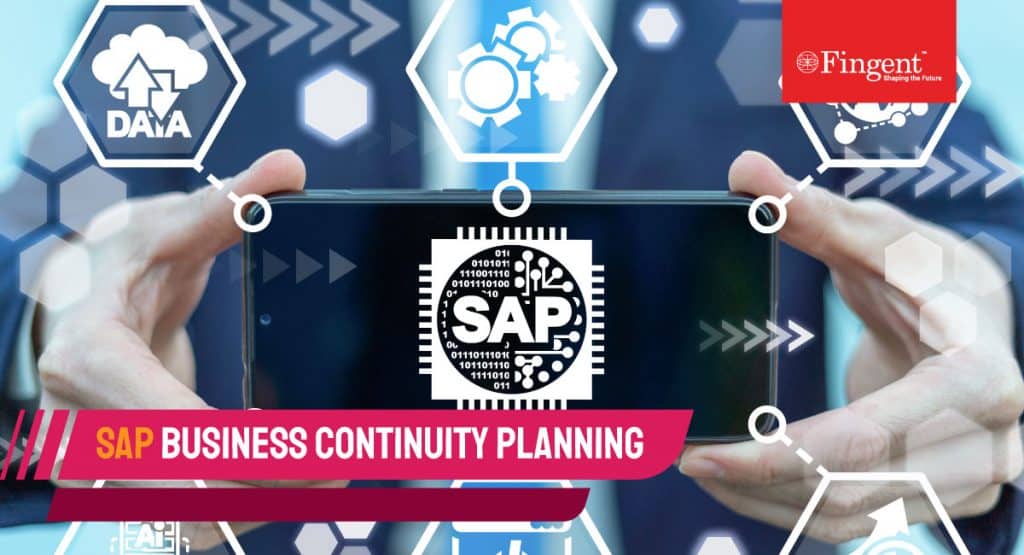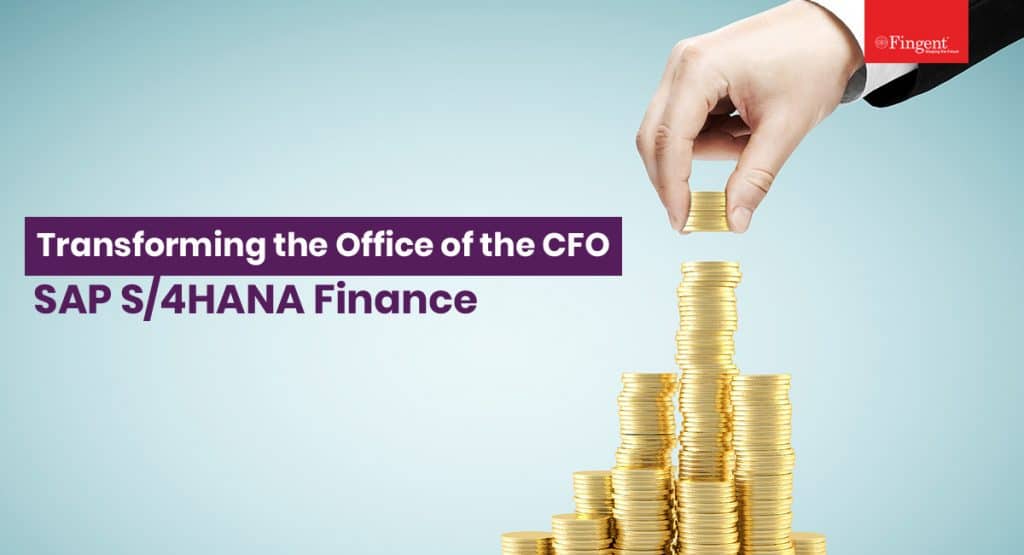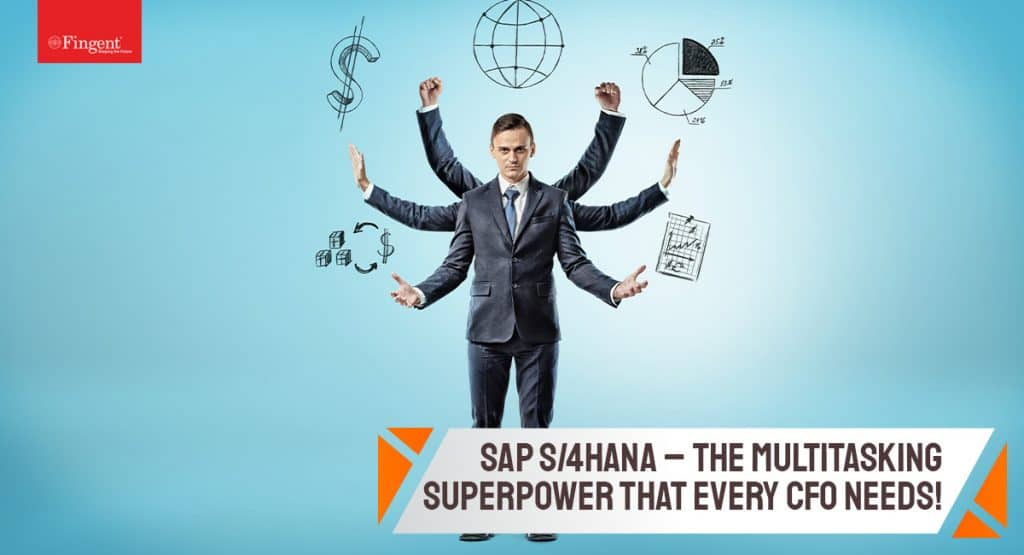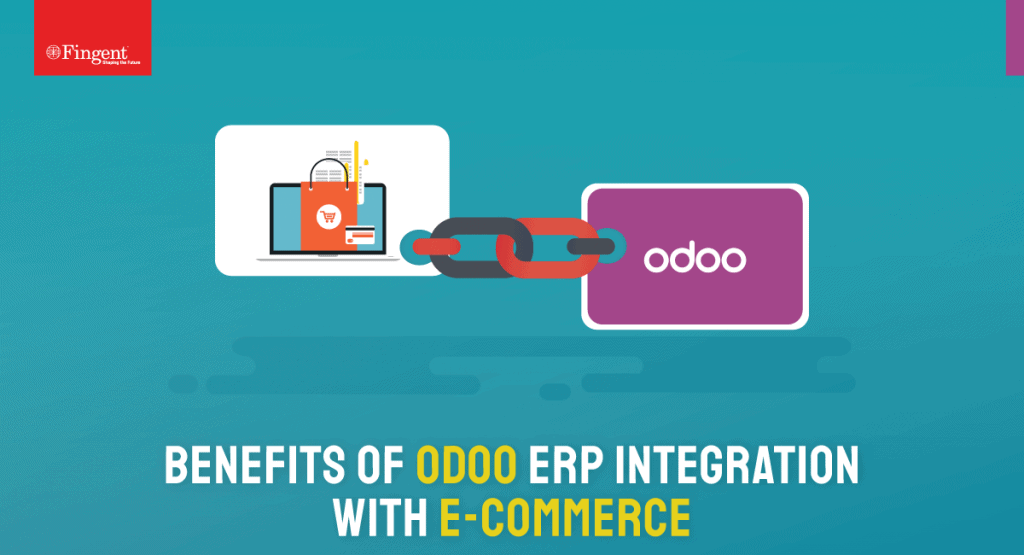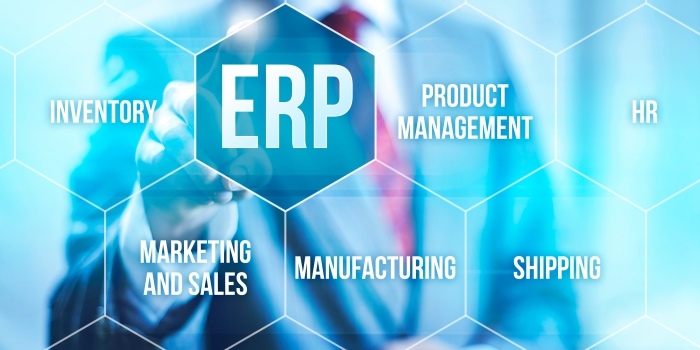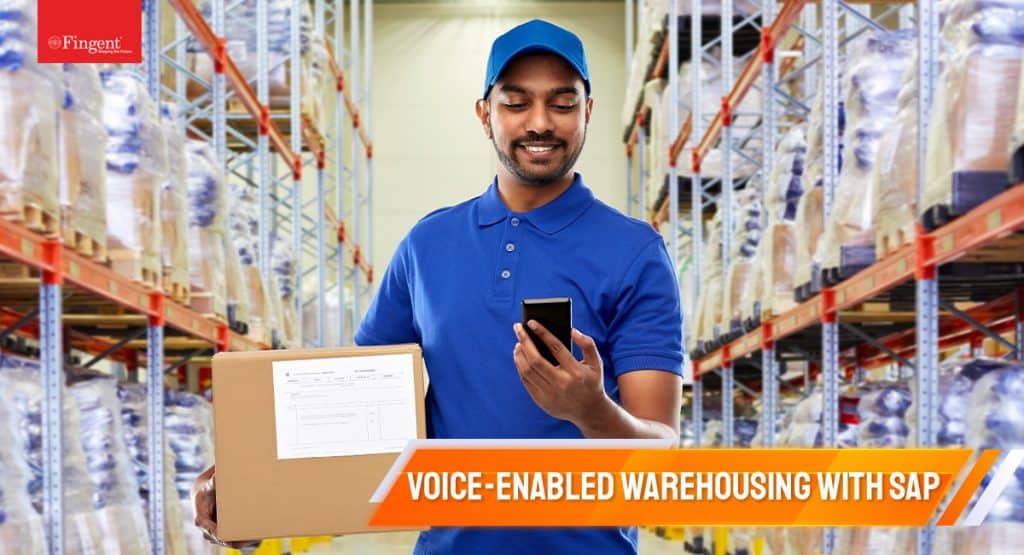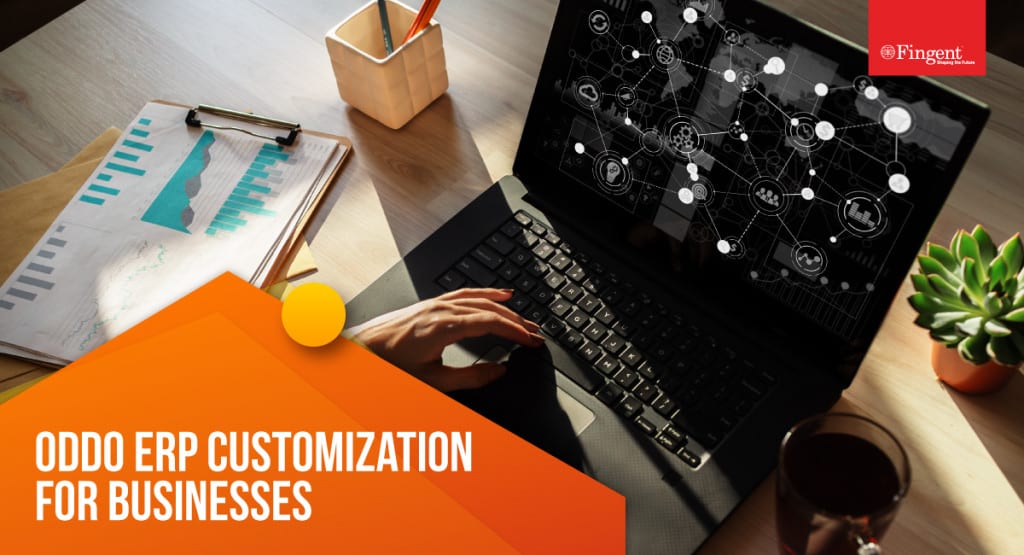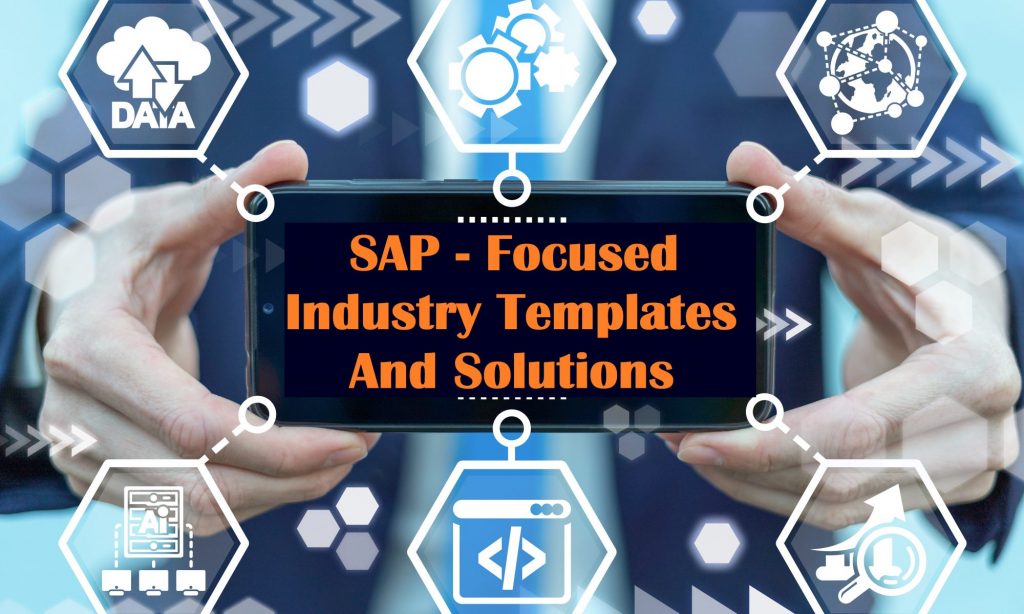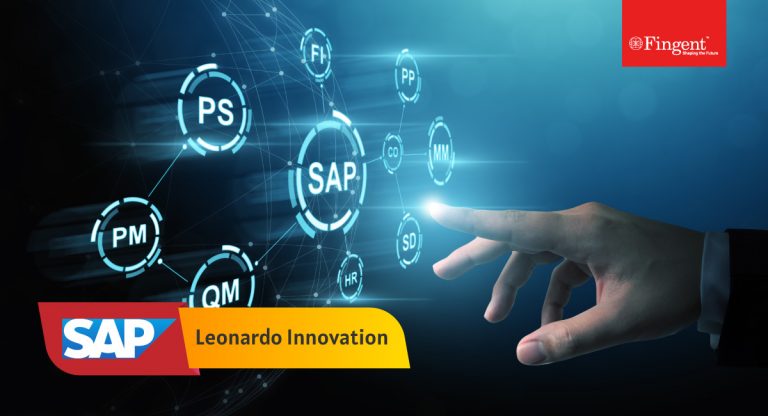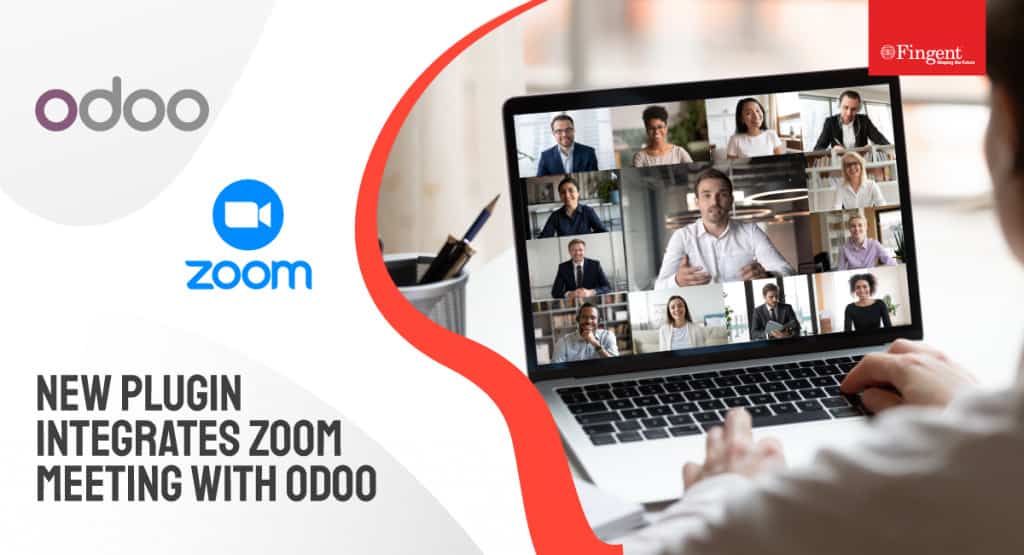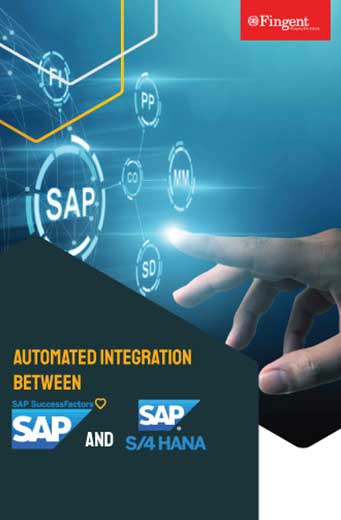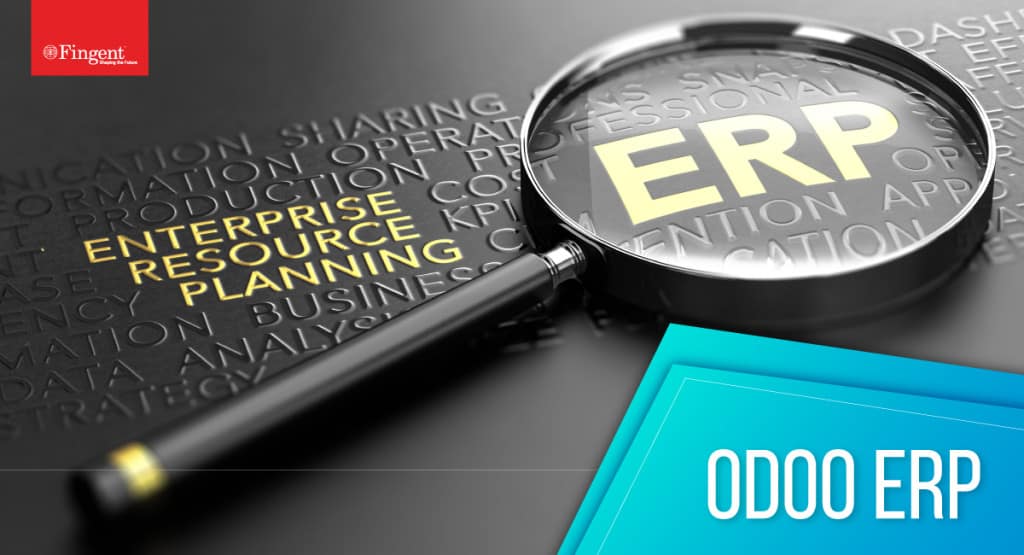Category: ERP
Why partner with an SAP AMS provider like Fingent
SAP AMS provides many benefits in managing and maintaining a company’s SAP ERP system. IT management’s role in companies has changed dramatically during the pandemic. The demand for SAP AMS (Application Management Services) is no different. As a result, applications must be adapted and kept up-to-date with the latest technological developments. Moreover, problem-solving takes time. This is a risky situation for businesses that are dependent on perfectly functioning IT.
Therefore, it is clear that to derive all those benefits from Application Management Services (AMS) while managing complex SAP applications would require an expert technology provider. An experienced partner like Fingent can ensure successful SAP application support and management. Fingent is a certified SAP Silver Partner authorized to deliver a defined SAP application support process. This blog discusses the top six benefits of working with an SAP AMS provider. Let us begin by understanding what AMS is and why it is crucial for your business.
What is SAP AMS, and why is it important?
SAP Application Management Services (AMS) are processes used to maintain, enhance and manage enterprise SAP environments. It includes development, implementation, testing, maintenance, and support. These services can be delivered by a qualified consultant that can leverage their expertise and business knowledge to provide maximum value to your company. Because they do this repeatedly, the time value is saved. An AMS provider gives you the ability to be more strategic with your SAP solution.
Read more: What is Business Process Expertise in SAP and Why You Need it
Here are three reasons that make AMS vital for your organization:
- Your IT becomes more strategic and less tactical
- Tailored AMS solutions can meet your specific business needs
- You will receive 24/7 assistance for your applications
Top six benefits of partnering with an SAP AMS provider
Gaining control of your digital landscape is imperative for business success. You will find it challenging to meet business requirements if your application demands too much attention. Working with an AMS provider allows your IT team to focus on strategic projects, giving your business the needed technology boost. Here are some key benefits of working with an SAP AMS provider:
1. Enhanced flexibility
We live in a world where you cannot predict what might turn everything on its head. This presents a need to be flexible in business. No matter which industry you are from, you are expected to adapt to any new situation and forge ahead. In other words, the more flexible and adaptable your business is, the more successful it will become. This makes it a smart move to keep up with new solutions constantly. Partnering with a capable SAP AMS provider will reduce the burden of suddenly having to implement more extensive projects.
2. Strategic overview
A mature SAP AMS provider will know what is essential to obtain more value from your SAP solution. With that aim, the provider will enable your organization’s IT team and resources to be more strategic than tactical. A good AMS provider will ensure that they fit seamlessly with your IT staff as an extension that enables your team to drive and deliver value-added SAP solutions.
3. Round-the-clock, follow the sun operation
Businesses looking for highly efficient, stable, robust, and cost-effective operations of their SAP environments must work with SAP-certified partners to enjoy maximum benefits. Most SAP AMS providers offer maintenance for daily operations, 24/7 production support, database services, etc. However, supporting more critical aspects such as functional and technical consulting of various SAP modules requires an experienced AMS provider who can bring in the prowess to turbocharge your applications’ landscape.
Fingent as a certified SAP Silver Partner delivers beyond the promise of regular maintenance. You can rest assured of an infrastructure that is ready to meet future challenges.
Read more: How SAP Supports Effective Business Continuity Planning
4. Tailored AMS solutions to fit your business requirements
The ideal SAP AMS partner knows your business so well that they will quickly adapt to fit your needs. Such knowledge about your organization is gained over time by maintaining a long-term relationship with your company. When you work together in partnership, you can define a right-sized and right-stored delivery model that perfectly fits your organization’s specific needs. A wide range of AMS solutions along with a capable AMS provider offers the possibility to custom-make your solution package to fulfill your unique requirements.
5. Well-equipped to positively improve ROI
Many successful organizations look for new and innovative ways to help them improve their ROIs. Partnering with an SAP AMS provider will help your business adopt new technological changes without requiring to train your employees rigorously. The AMS provider can help your business handle demands more productively. Well-maintained AMS can generate automatic reports that can help your business determine the actions taken to improve your ROI.
6. Save money with AMS
Working with an SAP AMS provider can help businesses save money. Your organization will no longer have to hire employees to carry out separate tasks. You could hire a team of professionals from your SAP AMS provider and pay only for the services you have used rather than pay for every employee individually. The amount thus saved can be directed to another department and used in the best way to generate more profits for your business.
Choice of SAP AMS provider
Remember, the choice of your SAP AMS provider directly impacts your business operations. To find a perfect match when choosing an SAP AMS provider, you must ensure that they provide deep SAP expertise along with an in-depth understanding of your IT infrastructure and process. Apart from technical expertise, your provider must have the industry know-how to understand your company’s unique needs and possess the ability to add immediate value.
Read more: How Fingent Helps CFOs Gain New Insights and Reliably Enable Key Decisions
We assure you that you can benefit from our SAP AMS approach at Fingent. Our AMS program can help your organization irrespective of your company’s size or your industry type. Fingent’s SAP AMS practice excels at helping you achieve operational and strategic objectives with superior technical expertise and industry knowledge. We ensure uninterrupted business operations and ongoing productivity improvement in your organization. Talk to an expert to learn more.
Stay up to date on what's new

Featured Blogs
Stay up to date on
what's new



Talk To Our Experts
SAP IRPA (Intelligent Robotic Process Automation) enables businesses to hyper automate their mundane processes to achieve process excellence, improve operational efficiency, and augment human intelligence.
How businesses can successfully attain hyperautomation with SAP IRPA
The concept of hyperautomation has created a buzz across the business landscape. As more and more businesses turn to hyperautomation as a solution and adopt RPA, you must be eager to know what it is and if you need to implement it in your business. RPA, IRPA, SAP IRPA … It can get a little confusing, so this blog will aim to decode all this for you and help you on your journey to hyperautomation. We have compiled a list of advantages of embracing hyperautomation with SAP IRPA along with industry use cases for your benefit.
What is IRPA?
IRPA (Intelligent Robotic Process Automation) refers to software programs that can be easily programmed to perform repetitive, tedious, or mundane tasks. One typical example is data manipulation, such as filling in forms, updating spreadsheets, and more. SAP Intelligent Robotic Process Automation powers this automation through SAP’s Business Technology Platform.
Read more: Top 7 Business Benefits of Adopting SAP Intelligent Robotic Process Automation
Advantages of SAP IRPA
By 2020, 53% of enterprises have already started their RPA journey. Interestingly, according to Grand View Research 2020-2027, the RPA market size is expected to reach USD 25.56 billion by 2027. However, just RPA is not enough. Gartner puts it this way: “Enterprise architecture and technology innovation leaders lack a defined strategy to scale automation with tactical and strategic goals. They must deliver end-to-end automation beyond RPA by combining complementary technologies to augment business processes. Gartner calls this hyperautomation.”
It is a clear sign that starting your hyperautomation journey is worth all the effort. Thankfully, hyperautomation with SAP IRPA brings together multiple components that stimulate the ability to automate work.
SAP IRPA: Accelerating the hyperautomation journey of businesses
Here’s how SAP IRPA helps enterprises with hyperautomation:
1. Automate interface monitoring
The application interface helps complete all transactions on any given day. However, the feedback from a transaction failure may not be apparent immediately. Users tend to realize transaction failures only when they check the interface. Checking the interface to ensure that there are no transaction failures is a repetitive and mundane task. Automating this task can save a great deal of time lost in checking for an error within the system. Hyperautomation with SAP IRPA can be used to automate interface monitoring.
Read more: How Automation Ensures Businesses Stay Afloat During COVID-19 Crisis
2. Source-to-pay (s2p) and procure-to-pay (p2p)
Procure-to-pay involves extracting invoice and payment data from multiple systems such as ERP (enterprise resource planning), supplier email, CRM, banks, vendors, and so on. However, not all these systems provide easy integration methods. There will be some form of repetitive tasks on the part of an employee. Thankfully, this is one area SAP IRPA can be an enabler. Hyperautomation with SAP IRPA can fill integration gaps. Since SAP IRPA bots work on the front-end, automating integrations is made easy.
Companies receive information from various sources like invoices, estimates, and quotes. It is crucial to extract the data from these forms and validate them. Hyperautomation with SAP IRPA automates the entire process of procure-to-pay. This will ensure that you are following procurement’s best practices and that there is a single source of truth for all transactions.
SAP IRPA Case Study: Villeroy & Boch
Villeroy & Boch was initially set up as a pottery company in 1748. Currently, it operates internationally, which requires impeccable operational efficiency and seamless workflow across all business functions. Villeroy & Boch thus decided to embark on their hyperautomation journey with SAP IRPA. They chose to rapidly automate simple, mundane tasks such as responding to starred email queries using SAP IRPA. This paved the way to create a fully automated invoice error handling process. IRPA bots increased the efficiency of the workflow while freeing their employees to focus on strategic tasks. SAP IRPA also enabled the organization to assist their wholesale customers in improving Villeroy & Boch’s top line.
3. Purchase order follow-up
A company will have to follow-up on purchase orders sent to their vendors, and the business has to make numerous follow-ups. However, the process of each purchase order remains the same, and it can be very costly. Companies can make their follow-up system much more efficient by embarking on a hyperautomation journey with SAP IRPA. An SAP IRPA bot can be programmed to hunt down and categorize these disparate points into a single report, saving a lot of time and precious resources for the company.
Read more: How Fingent Enables e-Invoicing for SAP Users to Stay Compliant with GST India Regulations
4. Improve user experience
Businesses that see lasting organizational change prefer to start small and eventually progress to change their organization’s entire culture. SAP IRPA can provide a great foundation to begin the hyperautomation journey. It allows you to transform one department or process at a time and then pick momentum. Such gradual momentum will have a positive impact, and your staff will be more inclined to embrace hyperautomation. Such implementation enables businesses to begin their hyperautomation journey with a small budget and in less time.
Here is an example:
Hewlett Packard Enterprise (HPE) was able to do more with less and efficiently remove costly and ineffective work processes with SAP IRPA. The company achieved proof of concept in just 55 days and deployed the full portfolio in as little as four weeks.
Read more: Top 3 UI Offerings from SAP: Fiori, Screen Personas, and Lumira
5. Customer relationship management
Level 1 of the customer contact desk processes a high volume of simple repetitive tasks. When a customer approaches a company with a query or complaint, a customer rep will have to perform the necessary actions by switching between various systems and applications before answering the customer. This has several disadvantages. Besides, this tedious search process may increase customer dissatisfaction. SAP IRPA can help avoid this as you can deploy intelligent RPA bots to manage repetitive tasks.
6. Data consistency monitoring
Most manufacturing companies rely heavily on live production data to make slight adjustments. Inconsistent data can lead to malfunctions across the company’s processes. At the same time, tracing data inconsistency is a mammoth task. However, it is a necessity to find the inconsistency and fix it. With SAP IRPA, a business can schedule automation to handle most of these issues. It can help collect and export the data stream details periodically. This will help in highlighting anomalies before they break the system.
Read more: How SAP Supports Effective Business Continuity Planning
Are you ready to hyper automate?
Is your company ready to set about the journey of hyperautomation with SAP IRPA? Let’s find out together. Fingent works with clients across the globe, helping them understand and implement SAP IRPA in their business. Our experts understand the nuances of different industries and will help you on your journey to success with SAP IRPA.
Leveraging SAP solutions with a Silver Partner of SAP will help you realize the full potential of SAP IRPA hyperautomation. Fingent offers custom implementation and migration services to SAP and can help you move quickly and make the best use of this technology NOW when you need it the most. Let’s get talking.
Stay up to date on what's new

Featured Blogs
Stay up to date on
what's new



Talk To Our Experts
Right ERP software helps CFOs contribute to organizational decisions more logically.
Selecting the Right ERP Solution: Crucial Points a CFO should Keep in Mind
The CFO is one of the most significant decision-makers in an enterprise today. CFO is the protector of your business’s financial records and has an ultimate say while making financial decisions for the company. However, in this digital age, the role of a CFO is evolving. A CFO takes a more holistic approach in the current scenario and guides the organization towards success by leveraging digital intelligence. CFOs must be equipped to keep their company afloat during an unexpected crisis such as the pandemic, identify new investment opportunities and help the business prosper in the face of intense competition. A tall order but not impossible.
To achieve this, CFOs must look at their existing systems to upgrade or replace those slowing down the organization. CFOs are responsible for ensuring that any new technology they adopt has what it takes to turn the business into an effective market disruptor.
This article covers a CFO’s top 5 considerations when choosing an ERP solution.
Read more: How Organizations can Gain a Competitive Edge by Implementing Digital Core ERP
1. Obtain hands-on knowledge on the process
CFOs might find it tempting to leave the ERP process knowledge to technical teams, but this could mean that they miss out on learning the crucial aspects of the ERP that will affect the organizational costs. Technology assists CFOs in controlling accounting and tax standards and in engaging with the business to drive value jointly.
Read more: SAP S/4HANA: Transforming The CFO into a Business Value Creator and Role Model
Technical jargon can be overwhelming for CFOs. But they need to clarify their questions with their ERP service provider.
To get you started, here are some important software concepts related to ERP implementation.
- Installation: Know what is required of your current server.
- Customization: Make sure the ERP software suits your organization’s specific requirements. Compared to other ERP systems, SAP requires minimum customization. It has many customizable solutions that are suitable for all types of businesses.
- Configuration: Ensure your software is in harmony with your workflow. Thankfully, SAP is suitable for any size organization.
Apart from this, confirm the ERP is hosted on the cloud because it is easier to handle and more secure to manage. Those who have migrated to cloud-hosted ERPs reap the benefits during the pandemic, where remote working is the only option to ensure business continuity. Making sure the solution is rewritten for the cloud will help CFOs keep up with any future changes.
2. Invest in a service provider with vision and efficiency
Your ERP solution’s longevity is determined by your service provider’s efficiency and capability. Do not hesitate to clarify certain aspects of your service provider and the services they have to offer you. Find out if their financial situation makes it a viable option for a long-term contract.
You also need to identify if your service provider can give you access to all the information you need for years to come. Additionally, consider if your vendor is relevant to the current market scenario and can stay relevant in the future. To that end, it may be helpful to enquire about their research and development plans to ensure they will provide you with high-end products now and in the future.
Read more: Why Choose Fingent as Your Odoo ERP Partner
3. What are the aspects of integration?
ERP is one of the multiple systems that determine your organization’s performance. To achieve optimum results, you will have to enquire about integration with other aspects such as EPM, SCM, HCM, and CX, to make way for a smoother workflow. How? When you have various platforms working together harmoniously, you can avoid data inconsistency between two systems.
Read more: 5 Reasons to Integrate Your E-commerce Application with Odoo ERP
To avoid cumbersome processes after ERP implementation, you must consider if the vendor you are planning to hire can provide you the best support required. Talk to them to ensure that all the different platforms function as one unit. The most relevant integration for a CFO is integrating ERP with EPM (Enterprise Performance Management). Picking the right vendor will help you with such critical integrations.
4. Choose the right ERP
ERP that fits one company does not match the other because each company has its own unique needs. Whether a business is small, medium, or large, a CFO must be aware of the need for financial planning tools. Hence, as a CFO, you must confirm your ERP caters to the size of your business. Additionally, your current ERP must be scalable to accommodate employees from various departments. In other words, you will need a scalable ERP system for your entire operation to work smoothly.
Read more: 5 Tips For Getting The Best Out Of Your ERP System
5. Identify the needs of all departments to ensure teamwork
The ultimate aim of a CFO is to ensure that the ERP they select is delivering excellent results. Hence, it is crucial to have all your employees on board and understand the ERP system.
To achieve that, you need to identify the needs of each department in your organization and make sure that ERP meets all those needs. This allows for an enhanced workflow among all employees. Include your organization’s CIO and other leaders during the planning and implementation of ERP software. They can spread a positive outlook toward the new system among the rest of the employees.
Read more: How Fingent Helps CFOs Gain New Insights and Reliably Enable Key Decisions
Are you ready to steer your business to success?
Understandably, implementing ERP will take time and effort. Besides, as a CFO, you will have to identify the potential and tangibly justify the cost of ERP. However, choosing the right vendor can make implementation hassle-free and result-oriented.
It is no surprise that successful implementation and deployment of ERP hinges on the right partnership with the right vendor.
As an Official Ready Partner for Odoo and SAP Silver partner, Fingent is the right provider to assess and understand your unique business requirements and help you become a cloud-powered enterprise. We offer dramatically shorter implementation timeframes. Our ERP allows for rapid configuration, customization, and deployment, significantly reducing the implementation cost. We provide both cloud and on-premises ERP solutions. So, do you feel ready to steer your business to success? Give us a call!
Stay up to date on what's new

Featured Blogs
Stay up to date on
what's new



Talk To Our Experts
The COVID-19 pandemic has hit retailers hard. Overnight, malls, boutiques, and shops teeming with customers were evacuated. As the days dragged by and shutters remained close, many retailers had to let go of employees and even shut their shops permanently. We will see how, but this blog aims to show that this does not need to be the case for your retail business. You can still stay afloat, beat the competition, and rise to success with a little help from SAP!
Changing market conditions show no mercy on retailers
With the pandemic raising its ugly head, 2020 seemed to paint a dismal picture for the future of retail. Major retailers have been canceling orders and delaying payments to their suppliers. This forced some brands to store their seasonal articles or move them into distribution centers or outlets. For some retailers, the coronavirus pandemic increased the risk of bankruptcy due to store closures, while others barely made it through.
For example, Rubana Huq, the president of BGMEA (Bangladesh Garment Manufacturers and Exporters Association), told the press that 3.18 billion orders were suspended. This had an impact on more than half of the 4 million garment workers in Bangladesh.
At the other end, brick-and-mortar presence is seeing a shift to the online commerce environment, which picked up at an exponential pace. E-commerce proved to be a pivotal moment for retailers, making it necessary for them to invest in digital capabilities. A critical aspect of staying competitive in such unprecedented times is the growth of technology and its importance in operational success.
Read more: How Fingent Helps CFOs Gain New Insights and Reliably Enable Key Decisions
Read on to find out how SAP plays a crucial role in turning things around for the retail industry.
SAP enables a differential strategy in the competitive market
More and more companies are recognizing the advantages of implementing SAP solutions. In the current recessionary and competitive market, delaying digital transition may prove a costly misstep that retail businesses will find hard to retrieve. Solutions offered by SAP can help retailers control various aspects of their business and identify trends in customer behavior and capitalize on opportunities at the right time.
With ever-changing customer behavior, SAP equips retailers to become customer-centric. It can help retailers analyze buying behavior by providing much-needed consumer insights. These insights will help them offer more personalized and delightful buying choices that attract customers and retain them.
Here is how SAP equips retailers:
- Provides real-time behavioral information, both online and in-store
- Reduces cycle time
- Helps retailers identify newer ways to find leads and build loyalty
- Streamlines operational process
Also, SAP solutions can help retailers offer a real-time personalized buying experience as it influences buyers’ behavior at the point of purchase. To create such a customized offering, retailers will need insight into buyers’ purchase history, profile, and shopping behavior. That’s where SAP solutions come to your rescue. SAP can provide retailers with all the information required to help them stay competitive.
SAP solutions help deal marketing and merchandise challenges
The retail industry can be volatile, especially during times like these. Retailers who manage seasonal merchandise might find it challenging to maintain multiple products and keep track of all that product data. Any incorrect data can prove costly for the organization. Such inaccurate data can also lead to a mismatch of data across all sales channels, presenting inconsistent product pricing and customers’ eventual loss.
Thankfully, SAP is the backbone for merchandise management, nullifying all these challenges. It comes with a simplified data model that offers end-to-end support for all retail functions. This concept works across the product lifecycle, from master data creation to stock management. It allows retailers to create and maintain the data effortlessly while ensuring pricing consistency across all the channels. These features can increase the organizations’ revenue, minimize data errors, enhance time to market, facilitate a better customer experience, and increase conversions.
Here is an example of how SAP solution helps:
Fewer markdowns: Retailers such as consumer electronics and fashion deal with seasonal goods. To stay competitive, retailers must ensure that these products are available in good time. SAP solutions offer more efficient season management and optimized ordering.
SAP solutions can help manage challenges in the supply chain
Inaccurate data can create challenges in planning, leading to longer response times and increasing the risk of losing the consumer to competitors. Fortunately, SAP solutions come with a single platform for all warehouse and transportation management. Features such as real-time analytics and advanced shipping capabilities can eliminate inventory challenges and enable live inventory management.
Thus, the supply chain process becomes agile and leads to higher revenue. It can also reduce the operating cost of the warehouse. By simplifying and automating processes, SAP can redefine retail and bring value to any retail business.
Read more: How SAP Helps Realize Voice-enabled Warehouse Operations
Following examples prove SAP helps with supply chain:
1. Fewer stock-outs
Supply chains are typically complex and need high levels of agility. SAP solution enables retailers to track procurement journeys automatically that helps reduce revenue loss due to the late arrival of seasonal goods.
2. Lower inventory costs
SAP can harmonize stock information and keep it up to date. At any given point, a retailer can intervene centrally and place a repeat order when necessary. This reduces inventory carrying costs and enables better inventory management which increases revenue.
3. Create seamless customer experiences
Retailers realize the significance of adopting sensor technology to create seamless and highly personalized business processes across all channels. SAP simplifies logistics and digital channel processes from order to payment, both in-store and online.
Key solutions from SAP for retailers
Here are some key solutions that SAP has made available, which can help your retail business:
1. SAP S/4HANA Retail solution for merchandise management
With the SAP S/4HANA retail solution for merchandise management, you can perform necessary checks on inventory, offers, availability across stores, and more in a single, unified view. It is instrumental in engaging your customers with cross-channel interactions.
Read more: SAP S/4HANA: Redefining End-To-End Solution
2. SAP Commerce Cloud
Through the SAP Commerce Cloud, retailers gain the ability to “launch new digital experiences with headless e-commerce capabilities.” SAP Commerce Cloud empowers your retail business with Web apps, chatbots, messengers, and other capabilities to enhance your customers’ digital experience, engagement, and conversions.
Read more: Why is SAP Commerce Cloud A Complete Digital Business Solution
3. SAP Ariba Strategic Sourcing
The SAP Ariba Strategic Sourcing Suite is “a single, closed-loop, source-to-contract solution bundle for managing sourcing and suppliers across all spend categories.” It helps retailers efficiently manage their direct materials sourcing without going through laborious and faulty manual processes.
Read more: SAP Ariba & SAP IBP Integration to enhance supply chain visibility in manufacturing
4. SAP Extended Warehouse Management
The SAP Extended Warehouse Management system is a brilliant solution to managing high-volume warehouse operations. It gives you complete visibility of your supply chain logistics, warehouse operations, and distribution process, giving you seamless control and maximizing the use of your resources.
5. SAP Business One for Retail
SAP Business One for Retail is a comprehensive digital solution that enables retailers to manage all their retail operations, including Point of Sale (POS) insights. It helps retailers with better inventory control, a streamlined ordering process, and seamless multi-channel e-commerce.
Read more: SAP Business One vs. SAP Business ByDesign: Helping Businesses Pick the Best
Empower your retail business with SAP
An industry capable of adapting to new and evolving trends will rapidly recover from the pandemic’s effect. SAP solutions can help retailers examine those trends in great detail. SAP is a powerful tool that allows you to gather all the essential data needed to improve your business. Powered by insights gathered with the help of SAP solutions, retailers can redefine loyalty programs and stay competitive in the current market space.
Fingent offers custom implementation and migration services to SAP and can help you move quickly and make the best use of this technology NOW when you need it the most. Leveraging SAP solutions with a Silver Partner of SAP will give your retail business an added advantage. Drop us a message, and let’s get you started.
Stay up to date on what's new

Featured Blogs
Stay up to date on
what's new



Talk To Our Experts
Odoo ERP implementation and maintenance enable businesses to handle critical business functions smoothly. Here are a few compelling reasons to choose Fingent as your Odoo ERP partner.
How Fingent’s Odoo ERP services benefit your business
If there’s ever been a lesson that history has taught us, it is to be prepared. Every business has its ups and downs, but the coronavirus took “down” to a whole new level for many organizations. While companies that adopted digital migration were prepared for the impending crisis, others faced a huge blow.
Amidst all this uncertainty, preparation is one constant. Odoo is an excellent tool in your arsenal to prepare you for today and times to come. Odoo ERP implementation has helped many businesses transform their operations effortlessly, and it can help you too. This article helps you see why Odoo ERP is proving invaluable for current businesses and how you can choose the right Odoo ERP partner for seamless implementation.
Read more: What makes Odoo the best ERP solution for your business?
Odoo ERP: The need of the hour
In the current situation, no one can tell when the pandemic and its effects will end. When the world is suffering from the loss of lives and finances, it is important to understand that we can perform only when we know how to live with technology. Given that, some organizations have opted for permanent work from home. With the help of Odoo ERP, companies can centralize their operations and integrate various important modules such as marketing, sales, and e-commerce.
Read more: 5 Reasons to Integrate Your E-commerce Application with Odoo ERP
In today’s crisis, which has been brought upon by the pandemic, businesses can leverage many benefits with the help of centralized cloud ERP:
- Accessibility: Odoo ERP allows all your data to be stored in a centralized cloud source. Authorized users can use the data according to their requirements.
- Affordable: Odoo ERP can integrate over 35 modules, and all significant modules can be interconnected. However, the charges are nominal.
- Times-saving: Odoo ERP allows businesses to access data easily without any hassle saving a lot of time.
How can the right Odoo ERP partner provide seamless transition?
Having the right Odoo ERP partner means having support and training from those who best understand Odoo ERP and your business. Each business is unique with unique process needs, so it pays to ensure that the Odoo ERP partner you select has substantial experience implementing Odoo ERP for businesses in your particular sector. As an official partner of Odoo, Fingent is primed to provide the best service you can get, but you don’t have to take our word for it.
Here are a few questions that you can ask yourself before you make your choice, and some details that will help you see if you should consider us for your needs:
Question #1: What do they know about my business?
Different industries have different requirements. Choosing a partner who is not aware of the many needs of your business is like going to an orthopedic for your cataract issue. Make sure your ERP implementation partner has a strong track record in your industry. Good knowledge about your business will help your ERP partner smoothly accommodate the new software. This will avoid the need to make extensive changes to your business that can be costly and time-consuming.
Apart from this, the partner will recommend specific Odoo ERP software features that will assist your particular business needs. They can also teach you how to make optimal use of the software. When your partner is specialized in your industry, they will be able to quickly modify according to changing industry standards, as happened during the pandemic.
Read more: 6 Ways Odoo ERP Customization Can Benefit Your Business
Fingent has worked with many clients in finance, healthcare, education, real estate, retail, and other sectors, so we have the expertise in handling your specific needs, irrespective of the industry to which you belong. The best of our minds specializing in your sector will be selected to work on your project.
Question #2: What kind of market reputation have they developed?
The Odoo ERP service provider’s reputation can give you a fair idea of whether it is worth investing in them. Go through their case studies of successful implements and testimonials. Ask for referrals and speak to those referrals to confirm the partner’s reputation. Doing so might help you find tips and advice on how you can work with your partner. Ensure the partner you are about to choose is reliable.
Check out the reviews and ratings given to us by our customers. We have received excellent ratings and many awards and recognitions globally. You can have a look at them on our About Us page.
Question #3: Are they well-equipped or under-equipped?
One of the things that make a company unique is its size and budget. Hence, it is important to find out if your partner has the resources to handle businesses that are of your size and scope. If the partner you have identified is a global company, they must have hands-on experience with global ERP implementation.
Question #4: How good are they at communication?
Even when you meet for the first time, do they answer your questions quickly and clearly? If you send them a query, do they take several days to respond? Is their website well-maintained? These are some questions that provide insights into their communication skills. An experienced ERP implementation partner will show interest in your company and the issues you are facing. That would mean they take time to ask you questions and analyze your business needs before providing a solution.
At Fingent, we are committed to providing a great customer experience for our clients. Here are some excerpts of testimonials about this from our client on Clutch. You can follow this link to see their detailed reviews:
“Fingent’s flexibility and great communication stand out. We didn’t have a tech background, but the team made it easy for us to understand and work through everything.” – Owner of a Concierge Services Company.
“Their team is completely committed to our success as a client, and they do that with their dynamic team.” – Kristen Betts, Principal, Substantive Solutions, Inc.
“I’ve never wondered if somebody else could have done it better, faster, or cheaper.” – Albert Navarra, Partner at Sapra & Navarra, LLP.
Read more: A 3 day Odoo CRM implementation story!
Question #5: Which project methodology do they use?
The project methodology is a set of rules and deliverables that are followed during the implementation process. A project methodology explains how you will be informed about the progress, what is the payment method and time, and when you can find out about potential problems.
When you initiate your project with Fingent, you get a dedicated and skilled team at your service that will guide you through the process. We start with an in-depth analysis of your requirements and walk you through the implementation process right through to post-launch support and updates.
Read more: How to Select the Right Engagement Model for Business Software Development
Question #6: Do I understand my business requirements?
It is crucial to know what your business requires. That will help you understand what kind of partner you should select. Hence, make an effort to understand what techno-functional needs you aim to achieve with the Odoo ERP implementation. Know which hardware and software technology you are currently using that may need replacement. Knowing your requirements will help you communicate them to your partner and receive an apt solution that fits those needs.
Our business technology consulting experts will be happy to help you identify and validate your technology needs by analyzing your current state of technology and desired business outcomes.
Test us out!
We understand that making decisions related to implementing new technologies is crucial, and an ERP platform will be the nerve center of your business operations. We are happy to sit with you and answer all your questions and allay your concerns about this. Please give us a call, and let’s discuss your project and needs.
Stay up to date on what's new

Featured Blogs
Stay up to date on
what's new



Talk To Our Experts
SAP Intelligent Robotic Process Automation accelerates your move towards Intelligent Enterprise. Redirect your resources to high-value functions with SAP IRPA.
Supercharge your business with SAP Intelligent RPA!
Is it a good time to look toward the future while the world is in the thick of the COVID-19 crisis?
Yes, it is!
Irrevocably, the pandemic has impacted business priorities in far-reaching ways. This global crisis has pushed businesses to pivot on a dime as they respond to changing factors such as customer needs, market, and new priorities. Even companies that were slow to adopt automation have begun leveraging powerhouse processes like Intelligent Robotic Process Automation (IRPA).
Read more: How Automation Ensures Businesses Stay Afloat During COVID-19 Crisis
Organizations are now using Intelligent RPA to provide faster service to customers, revamp operations for distributing work, and reduce costs during this economic turmoil. Most enterprises are embarking on their automation journey with SAP IRPA. This piece shortlists seven reasons how global IRPA from SAP can enhance business performance and productivity.
What is SAP IRPA?
The SAP IRPA suite is an end-to-end cloud solution of automation tools. The work on IRPA technology began in early 2018. Within two years, SAP managed to become a relevant global RPA player. SAP IRPA provides better integration into the SAP application stack. It uses intelligent bots to automate repetitive manual processes. What makes SAP Intelligent RPA is that it helps businesses stay relevant by providing insights that empower them to make the right decisions.
Read more: SAP Focused Industry Templates & Automation Solutions
7 ways SAP IRPA can enhance the performance and productivity of your business
1. Easy integration with SAP applications
Usually, employees will have to spend a lot of time moving from one application to another. This is where intelligent bots come in and address one of the biggest pain-points of employees. It allows them to execute processes over multiple systems, multiple software, and multiple cloud solutions. This way, employees enjoy the ease of data transfer while still accessing numerous applications quickly. Such easy integration improves speed and efficiency while reducing costs.
Read more: Top 3 UI Offerings from SAP: Fiori, Screen Personas, and Lumira
2. Purchase order follow-up
It is the responsibility of the company to follow-up on a purchase order. This may mean that the business will have to follow-up on numerous occasions, right from the issuance of the purchase order to receipt of goods. However, this does not mean that the process keeps changing with each purchase order. A single SAP report is not capable of addressing all these follow-ups. A user will have to rely on various reports.
SAP IRPA implementation enables a user to quickly generate daily reports on all open purchase orders. By implementing the SAP IRPA tool, a business could make its follow-up system much more efficient. It allows business users to pay attention only to a few cases while the rest could be handled by the SAP IRPA tool.
3. Supplier evaluation
Keeping track of suppliers’ information helps the purchasing department negotiate the best rates. It can also help ensure the timely delivery of material and services. A supplier evaluation could include parameters such as price and delivery of the materials or services, goods receipt, invoice verification, quality, and price changes.
The reports must be run to get the relevant data. Implementing SAP IRPA can help business users export the data to multiple Excel sheets, and run compares to create one report that can then be published weekly. This way, a business will have error-free, real-time data that helps them with the supplier selection process.
4. Workflow monitoring
In every business, transactions happen daily, and workflow failures are common. However, at a crucial time, workflow failures can affect crucial business processes. It would require a workflow support team to run data fixes and restart the workflow.
With SAP IRPA, you can quickly identify the issue and fix it. This process does not require a support ticket, and you can do it regularly. It takes the load off the workflow consultants as they need to be involved only for issues that require code changing.
5. Cost optimization
SAP IRPA can create cost savings by enabling 24/7/365 execution at a fraction of human equivalents’ cost. Using robotic technology proves to be cost-effective and helps businesses cut down operational costs.
The likelihood of human error is higher in routine manual tasks. SAP IRPA can help improve that while saving costs by eliminating the need to repeat a job. This translates into reducing costs incurred by human-error.
6. Maximize business process performance
Bots can learn patterns without explicit training. This capability helps in identifying structured and unstructured data and takes necessary actions automatically. These self-learning bots maximize business process performance.
SAP IRPA can deliver bots that provide human-like interactions with customers. By automating repetitive business processes that need human intervention, digital assistants improve user productivity and efficiency.
Read more: How Robotic Process Automation Is Revolutionizing Industries?
7. Interface monitoring
While interfaces help in numerous transactions, they also encounter many failures. Sadly, most users are unaware of an interface failure unless they identify a failed business transaction. This may force a business to depend on support teams to identify and fix the problem to ensure that the business transaction can be completed on time.
However, identifying the problem is a tedious and complicated task that takes a considerable amount of time. Typically, an organization starts monitoring its interface only when a business user realizes that his/her business transaction failed.
A better approach would be to implement SAP IRPA to program interface monitoring that can be done daily. This allows the support team to focus on solving issues before a support ticket is raised.
Why is it essential to choose SAP IRPA now?
Before COVID-19, RPA has played a vital role in delivering digital transformation, driving-up productivity, improving work capacity, and augmenting overall worker satisfaction. During the COVID-19 crisis, RPA enabled businesses to take urgent action to reduce the pandemic’s negative impacts. This allowed companies to turn resources around to ensure business continuity. Moving forward, SAP IRPA will facilitate business continuity and future growth of organizations as they emerge from the current economic downturn.
Read more: How SAP Supports Effective Business Continuity Planning
If you haven’t yet enabled SAP IRPA powerhouse, it’s high time you did! Give us a call and let us help you get on-board ASAP.
Stay up to date on what's new

Featured Blogs
Stay up to date on
what's new



Talk To Our Experts
Digital core ERP can help bring about innovations across the value chain. Companies have to get ready to compete by leveraging the digital core or be left behind.
Take your business to the next level using digital core ERP!
Organizations commonly use Enterprise Resource Planning or ERP software to streamline their back-office functions, logistics, customer service operations, and inventory management. However, it is not agile enough to match the ever-changing requirements of a digital customer.
To establish agility within the foundation of ERP, providers worldwide are repositioning themselves to adapt to the new shift of digital core. Digital core ERPs such as SAP S/4HANA can help companies to stay relevant in today’s digital economy. Odoo ERP and SAP are two of the leading core ERP vendors that help automate back-office functions and accelerate your journey to the intelligent enterprise.
Read more: Unlock the Potential of Intelligent Enterprise with SAP Leonardo
What is meant by digital core?
Simply put, the digital core includes technology platforms and applications that enable organizations to transform into digital businesses and meet the changing customer needs. Digital core ERP allows companies to overcome complexity in enterprise and resource management and drive business innovation.
It includes emerging technologies such as IoT, AI, machine learning, and advanced analytics that require businesses to adopt flexible, scalable, and cloud-based platforms. Digital core prepares data for machine learning systems, text to speech, neural networks, decision making, and other advanced applications and creates algorithms for business and IT.
The digital core will allow organizations to improve their existing business processes or develop new business models using digital transformation initiatives.
This new integrated system allows business leaders to predict, simulate, plan, and predict future business outcomes in the digital economy.
Read more: SAP S/4HANA: Transforming The CFO into a Business Value Creator and Role Model
Why is digital core significant for your business?
Businesses that fail to address the changing enterprise and consumer demands due to their rigid core systems face the risk of losing the competition to their more agile counterparts.
To prevent losing business and reputation, enterprises must leverage digital core in the right way and integrate it seamlessly with their internal and external partners. In other words, enterprises must look beyond digitizing peripheral processes and align their core to meet the changing demands. It will not just eliminate manual steps and deliver agility but also provide a seamless user experience.
Examples of digital core
Finance
Finance professionals can leverage the digital core to obtain a single source of truth for finance. Finance departments have to handle reconciliations between internal and external reporting and multiple sources of truth stored in different ledgers. While traditional applications can help optimize and control functions, they cannot create a single source of truth, resulting in data accumulation by reconciling ledgers and valuations. With the digital core, businesses can eliminate reconciliation and execute seamless closing from unified data models. It also improves the allocation and closure of processes by ten times. The digital core’s main advantage is that it helps simulate financials in real-time with many ‘what-if’ possibilities.
Read more: How Fingent Helps CFOs Gain New Insights and Reliably Enable Key Decisions
Automotive manufacturing
The digital core can provide a digital experience along the automotive manufacturing value chain. The digital core can power a connected car to offer a personalized driving experience to drivers, including services like parking and fuelling options based on real-time information. The connected vehicle captures data that can be used for predictive analysis to gain insights into driver behavior and preferences. The digital core also helps enhance manufacturing by moving from batch orders to real-time manufacturing resource planning to meet the growing demand.
What are the benefits of the digital core?
Digital core allows enterprises to integrate business process and transactional data from back-office ERP systems with a large amount of data (structured and unstructured) from different sources. Advanced analytics can be embedded in the digital core data to produce new insights, such as proposing further actions and predicting outcomes. Interestingly, many of these processes can operate automatically in near real-time.
How to prepare for digital core transformation?
Firstly, it is essential to have an all-inclusive digital strategy along with effective executive leadership. Additionally, enterprises can focus on three critical tasks:
- Restructuring the organization
- Transforming the organization’s culture
- Re-platforming their technologies
As digital core transformation will have an impact on both the core and the peripheral assets as well as technologies, the new strategy must allow them to:
1. Push tailor-made solutions
Companies that use SAP products can move to SAP HANA products such as SAP S/4HANA and opt for the right cloud-based products to allow better agility during deployment.
2. Establish strong collaboration with partners
Collaboration with partners will help you achieve faster time-to-market for innovations. Also, you can leverage partner innovations along with data integration to deliver value to your customers continually.
3. Enhance the business
Use business process management tools to optimize your business processes and meet customer expectations. Technologies like cognitive analytics allow businesses to identify strategies that lower their value.
Advanced skill sets and enterprise-wide scale are required for digital core transformation, which may be challenging for most businesses. Therefore, it becomes imperative that you find an experienced and trusted partner who can support your digital core journey.
Here are a few tips for choosing the right implementation partner:
- Evaluate their investments
- Understand their willingness to collaborate
- Gauge their implementation expertise
- Look for SAP or Odoo ERP partners
- Gauge their desire to embrace new products and platforms
Read more: 5 Salient Features of Odoo that Make it a Reliable ERP for Enterprises
Why choose Fingent as your digital core ERP implementation partner?
Fingent offers ERP implementation and consulting services to businesses worldwide. We are an Official Partner of Odoo. Our Odoo ERP implementation and customization projects are tailored for easy adaptability. Fingent is also an SAP Silver Partner. With our expertise in cloud computing and custom ERP development and implementation, we can support you through this critical time and help stabilize your business operations and strategize for the future. Get in touch with our expert to discuss your requirements.
Stay up to date on what's new

Featured Blogs
Stay up to date on
what's new



Talk To Our Experts
How does Odoo ERP Customization Help Businesses?
In the current age of empowered consumerism, businesses should never underestimate the importance of customization in their strategy. Each company has its specific requirements, so customization has become increasingly significant to business growth in the past few years. As businesses wade through unprecedented times, customization emerges highly relevant in 2021. Enterprise systems like custom Odoo ERP solutions, in particular, witness an increasing market adoption.
Undeniably, customized ERP software can unlock tremendous opportunities for businesses to grow and expand. However, do you feel that committing to a software vendor could mean you are relinquishing control of your business or that it might not be financially viable? If yes, we invite you to read this article and put your fears to rest as you discover the importance of Odoo ERP, especially as we approach 2021.
Read more: How Odoo ERP Simplifies Sales Management in Your Organization
Does Your Business Need Odoo ERP Customization?
Every business has its requirements, and just because one methodology worked for a particular company, it cannot be a yardstick for all enterprises. Hence, it’s crucial to customize your business software to address your specific needs. The foremost reason for having customized Odoo ERP software is that it can address your specific business requirements. It is essential for businesses to wisely use this capability and customize their Odoo ERP software for an organized workforce and a highly streamlined workflow.
Read more: 5 Salient Features of Odoo that Make it a Reliable ERP for Enterprises
Consider a few reasons:
1. Process Extension
The productivity of any business depends on its work process and business forms. Each association has an alternative work process that may require customization to be more effective. To that end, business leaders may have to stretch out procedures to build new functionalities. In such situations, customizing Odoo ERP can improve collaborations within the work process.
2. Increase application lifespan
Applications are building blocks of any business process because they provide vital features and functionality while simplifying the business process. Given that, businesses cannot afford to lose applications at a critical moment. Companies thus need customized ERP solutions to increase the lifespan of business applications.
3. Establish Unique Identity
Every business has specific objectives to accomplish, which sets them apart in the market. Online marketing activities and data reports of a business mirror its unique identity. Customization of Odoo ERP software can empower businesses to establish their unique identity despite challenging situations.
4. Mobility
With the changes brought about by the pandemic, the need for mobile ERP solutions has taken precedence. Odoo ERP customization can help organizations achieve the desired mobility.
5. Additional features
COVID-19 has redefined the way businesses function that necessitates improvements and upgrades in the business process for 2021. However, it would help if you streamlined each upgrade with the existing process. You can achieve this by incorporating additional features to improve the performance of the whole organization. Odoo ERP customization will help you include other features tailored for your specific business needs.
Read more: Fingent’s new plugin facilitates the scheduling of Zoom meetings from Odoo!
6. Increased adaptation
The pandemic has made it evident that an unprecedented event can take you completely by surprise and change the face of your business. Quick adaptation is necessary for businesses if they are to survive and thrive. However, it can be challenging to find new ways that align with your existing business process. Business systems that are not flexible to adaption can collapse, bringing a thriving business to a grinding halt. Odoo ERP customization enables companies to achieve flexibility, empowering them to adapt quickly as the need arises.
Benefits of Odoo ERP Customization
Odoo ERP customization offers businesses increased flexibility and better control resulting in increased sales and improved customer relations. Here are four main benefits of customized Odoo ERP software:
1. Flexible
Flexibility and better control over mission-critical business functions are two of the main benefits of Odoo ERP customization. The extent of that flexibility depends on the type of customization done by the ERP development company. Since Fingent is an official partner of Odoo, our team is fully trained in Odoo ERP development. Our projects are tailored for easy adaptability.
2. Comprehensive
Odoo ERP covers a wide range of business needs, such as financial management, warehouse management, CRM, and human resource management. It can integrate almost all aspects of a business to improve overall efficiency.
Read more: 5 Reasons to Integrate Your E-commerce Application with Odoo ERP
3. Offers support and allows upgrades
Customized ERP applications give you complete control over their features. It also allows you to upgrade the applications when required. At Fingent, we offer user-friendly applications that help businesses achieve their daily organization and management goals.
4. Development time
Development time might concern enterprises that need to deploy a customized ERP solution within a given time frame. The development timeline varies from project to project, depending on the requirements and expectations of an organization. However, it is a profitable investment considering the long-term benefits.
5. Cost-effective
There is a misunderstanding that customization of the Odoo ERP system costs a fortune or might complicate the software system’s entire delivery. This has held back some businesses from investing in it. While it is true that customized ERP solutions require to be developed from scratch and tend to be more expensive than off-the-shelf systems, you must consider that the benefits and long-term savings far outweigh the cost.
The development cost of customization depends on various factors such as the type of application, the number of features, and the time required for the development. However, Odoo offers a basic ERP system with a low-cost license fee. Hence, developing a simple enterprise application with basic features can be cost-effective in the long run. Organizations can maximize the budget on the customization of the platform.
6. Security
Odoo ERP is known to be secure by design. Being an open-source platform, Odoo is under constant scrutiny by its users. This ensures that it continually improves on bugs as soon as users report them.
Easy Adaptability with Complete Control – Grab It Now
Customization of the Odoo ERP system provides you with the functionality that your business requires. It eliminates any unnecessary features that could confuse a customer and allows you to customize the source code to suit your business needs and features. Customization can also reduce entry duplication and removes redundant fields, which enhances the efficiency of your employees. It can address your current business requirements while providing you with the opportunity to continually improve and refine your business processes as 2021 approaches with new challenges.
If you are worried that the implementation might be difficult, we want to assure you that it isn’t. Fingent’s Odoo implementation projects are tailored for easy adaptability and user-friendliness while ensuring that you have complete control over your processes. Give us a call, and let’s get talking.
Stay up to date on what's new

Featured Blogs
Stay up to date on
what's new



Talk To Our Experts
SAP Analytics Cloud: 7 proven ways it can help your business
From manufacturing to marketing, businesses worldwide face unforeseen challenges as they continue to meet the impact of the COVID-19 pandemic. Many organizations are accelerating digital transformation, establishing variable cost structures, and implementing agile operations to emerge from the pandemic stronger.
While most companies believe that the pandemic will negatively impact their business, some businesses feel that the consequences will be short-term. Although most firms have been affected by the pandemic, a survey shows that two-thirds of micro firms are severely affected by the crisis than 42% of the large companies.
Amidst this uncertainty, companies must consider how the pandemic’s continuation or return in different regions will impact their recovery strategies. Businesses must face this uncertainty by reassessing assumptions, re-evaluating scenarios, and strengthening their ability to respond.
Read more: 11 Practices Followed by Leaders to Build Resilience and Ensure Rapid Business Recovery
Simply put, now is the time for businesses to focus on supporting critical areas of their business that will help them stay relevant in the new environment and plan new strategies for what’s next.
Critical areas for businesses to focus presently
- Workforce
- Finances
- Operations and supply chain
- Strategy and branding
- Tax, trade, and regulatory
- Crisis management and response
What can businesses do?
- Leverage their crisis management team to focus on efforts in the wake of the crisis.
- Shift your focus on bringing back employees to work, assess your company’s response efforts to date, and evaluate areas for real-time course corrections.
- Use the insights the crisis has provided to help chalk out better strategies and capitalize on the opportunity for transformation.
SAP Analytics Cloud has changed the way businesses plan their strategies. It is a robust, agile analytics platform that helps firms arrive at faster and improved business decisions. Moreover, it delivers insights that can be used for enhanced decision-making and optimize resources across all processes.
Read more: How SAP Supports Effective Business Continuity Planning
Combining our functional and industry expertise with SAP Analytics Cloud, Fingent delivers analytics solutions that drive your competitive advantage, reduce costs, and increase revenue.
What is SAP Analytics Cloud?
SAP Analytics Cloud or SAC is one of the best SaaS solutions that combines all the functionalities such as planning, predictive, business intelligence, and more in one user interface. It helps save time and effort while making improved decisions.
SAP Analytics Cloud comes in two modes: Private and Public. As the name suggests, the Private edition hosts only one customer while the Public edition offers multi-tenancy. Also, cost-wise, the public edition is less expensive than the private edition.
Also read: Fingent offers e-Invoicing integration for SAP ERP users in India – Stay compliant with GST India e-Invoicing
Top 7 business challenges solved by SAP Analytics Cloud
1. Planning and consolidating financial strategy in one solution
SAP Analytics Cloud puts together- planning, predictive, Business Intelligence, and augmented analytics competencies into a simple cloud environment that allows you to consolidate your finances, expenses, and revenues at a single source across your whole organization.
2. Discovering useful insights
SAP Analytics Cloud joins hands with machine learning and augmented analytics to help convert insights that deliver value across your business.
Augmented Analytics allows you to explore your data automatically, discover cycles and trends, and identify possible ways to effectively chalk-out your expenses and cost plans. These intelligent insights can be turned into an actionable plan using a personal sandbox environment that helps visualize your performance metrics and simulate potential budget outcomes.
3. Aligning plans across your business
There’s no denying that financial and operational planning is a must when working with multiple teams and stakeholders. SAP Analytics Cloud helps you make smart decisions. It comprises several collaborative enterprise planning tools that allow you to link and align your expense and cost plans across departments such as HR, sales, finance, marketing, IT, and supply chain in real-time. These benefits eliminate the need for sending out unnecessary emails enclosed with irrelevant plans and avoid collaborating without context.
SAP Analytics Cloud allows you to create and assign tasks with the calendar, communicate with your team in real-time with the discussion panel, and collaborate directly on your plans with the data point commenting tool.
4. Improving planning cycles with predictive analysis
Gone are the days of the tedious manual building of your expense forecasts. SAP Analytics Cloud includes exceptional machine learning and predictive analysis technology that can help you build accurate expenses and cost plans much faster.
You can use the predictive features to automate baseline expense planning forecasts based on previous data. You can then monitor plan attainment with real-time, up-to-date predictive forecasts. Its accuracy indicators enable data analysts (without any technical knowledge) to trust the data-driven predictions before including them into their planning process directly.
5. Enhancing strategic business decisions
With SAP Analytics Cloud machine learning technology, you can convert insight into action within seconds. Automated technology helps you avoid agenda-driven and biased decision-making as it provides you with insights that drive your business.
- Search to Insight – Natural language query generates visualizations to answer your questions instantly. Machine learning technology provides you with important trends quickly.
- Smart Insights – Machine learning technology helps you save time and focus more on high-value activities by allowing you to understand the significant contributors of data points without the need to pivot your data manually.
- Smart Discovery – This allows you to identify key influencers and relationships in your data to help you understand how business factors influence performance. Also, it can detect anomalies and help you take corrective measures. With machine learning projection, anyone can simulate the impact of strategic business decisions.
Case study: Automated Integration between SAP SuccessFactors-Employee Central and SAP S/4HANA – Find how Fingent helped the customer gain real-time insights for improved decision-making
6. Data modeling
SAP Analytics Cloud helps you plan and build the right model where your data is stored efficiently. With this end-to-end solution, you can immediately take action and start planning. The data modeling feature allows you to prepare your data for analysis. “Models” and “Stories” are the two key components of SAP Analytics Cloud’s BI function. Models allow you to enhance your data by cleansing, wrangling, establishing hierarchies, defining rules and conditions, and adding formulas. Stories give life to your data by letting you visualize your information through charts and graphs, which will help you gain valuable business insights.
7. End-to-end industry dashboards
SAP Analytics Cloud offers business content packages tailored to individual analytic scenarios. Each package entails aesthetically built dashboards, stories, and data models carefully designed for specific lines of business and end-to-end business scenarios. Also known as Analytics Content Network, this business content library offers tried and tested best practices for leveraging your available data and accelerating your go-live. The content network is customized to work with existing SAP data sources such as SAP S/4HANA or SAP C/4HANA.
Read more: SAP Focused Industry Templates & Automation Solutions
Today, businesses need to forecast changes ahead of time. SAP Analytics Cloud helps to anticipate and plan for the impact of the crisis on business. How a business responds to challenging situations determines its strength and potential to recover.
Fingent is an SAP Silver Partner. With our expertise in cloud computing and SAP services, we can support you through this critical time and help stabilize your business operations and strategize for the future. Get in touch with our expert to discuss your requirements.
Stay up to date on what's new

Featured Blogs
Stay up to date on
what's new



Talk To Our Experts
Odoo ERP Implementation for Sales and Revenue Optimization
Pandemic or no pandemic, businesses are facing intense competition in the market. To stay competitive, your organization must think strategically before every move. This is especially true when it comes to sales and marketing. Ask yourselves these questions: Are your projections based on assumptions rather than figures derived from an analytical perspective? Does it take an awfully long time to reconcile your finances at the end of the month? Are you struggling to keep up with a surge in order volumes, which leads to disgruntled and dissatisfied customers? Is your inventory a royal mess? If your answer is yes to any of these questions, then your business needs an ERP system! With its vast suite comprising over 40 business productivity applications, Odoo ERP provides a smoother and simpler way to run your business.
The range of business apps offered by Odoo is highly comprehensive, fully-integrated, easy to use, and supports numerous different industries. Fingent, utilizing its partnership with Odoo ensures their clients are leveraging one or more apps from Odoo to boost their business efficiencies.
This article will highlight the challenges you may be facing in sales and marketing, and help you see if Odoo ERP can be a solution.
Challenges in Marketing and Sales
Sales and Marketing play a vital role in your business, whether you are a B2B or a B2C company. Here are some challenges that could be an indicator that something is amiss and that you need to take action asap.
1. Different processes to handle different tasks
Is your company using different types of software to record, track, and process information? If so, it can result in inaccurate sales data. Not having the accurate and latest accounting information can have an impact on everything from market budgets to payrolls.
The good news is that the Odoo ERP software can integrate these systems so that all business functions stay connected to a single database. This will ensure you get accurate, real-time data when required. This can also free up your staff so they can concentrate on helping the business grow even faster.
2. Finance reconciliation is a laborious process
Perhaps your accounting team is spending hours cross-posting information, rekeying numbers, or reconciling data manually. Odoo ERP can make a big difference here. It can automate process transactions and generate audit trails and financial reports. This can greatly simplify period-end closings.
3. Reconciliation of data takes too long
Finding average sales margins or other metrics might be a daunting task for companies that have isolated systems or work on spreadsheets. Thankfully, the Odoo ERP solution can give a holistic view of your business operations so that your staff can get accurate information to accomplish their jobs more effectively.
Read more: 5 signs which imply that your business needs Odoo ERP
How Can Odoo ERP Assist Your Business Gain?
Odoo ERP provides more than 5000 modules. These can help you accomplish all your business tasks efficiently and successfully. Since it is an open-source ERP platform, it can fulfill all business requirements. Odoo is API-friendly. Hence, it is easy to implement and integrate with your other business applications and modules.
Odoo has a modular structure that allows for phased implementation. Implementing one module at a time helps your organization test the functionality of that module before implementing the rest. This saves a considerable amount of time and resources. Also, with Odoo development, you can avoid licensing costs. Understandably, this enables businesses to invest for future customizations.
Fingent’s new plugin facilitates the scheduling of Zoom meetings from Odoo!
Check out our Odoo Zoom integration module launched in Odoo Apps Store.
With Odoo you can:
- View complete details of sales order and sales management in real-time with the help of a single software application.
- Track the future profitability of your organization based on the analytics of current production and sales.
- Make quick and informed decisions with the help of sales reports. These reports help you forecast the product demand for the future.
- Decrease the time that takes to manage the sales process.
- Manage the entire sales order lifecycle with the help of post-sales activities.
- Minimize the delivery time.
Read more: 5 Salient Features of Odoo that Make it a Reliable ERP for Enterprises
In What Ways Can Odoo ERP Help?
Odoo ERP is a customizable platform. It enhances sales and marketing and thus drives growth. It can help in:
1. Managing Sales
Odoo makes it easy to manage and categorize sales orders into a well-structured and hierarchical system. It allows you to create fresh orders as well as review existing ones.
2. Point of Sale or PoS
Odoo can optimize the Point of Sale management that includes various processes like invoicing, cash registration, and inventory.
3. Customer Relationship Management
The customer relationship module (CRM) of Odoo helps you manage business activities, cash opportunities, solve bug-related issues, and focus on leads. With the help of this module, you can automate most activities like streamlining communication. It also allows you to prioritize your work.
4. Easy Warehouse Management
Odoo can support the management of multiple warehouses and stock locations. You can easily and quickly define inbound, outbound, and stock locations for each of those warehouses.
Read more: How your online store can benefit from Odoo ERP integration
5. Purchase Management
Odoo ERP makes it convenient to monitor the quotations from the suppliers. You can effortlessly convert those quotations into purchase orders.
6. Enhance Manufacturing Process
Odoo helps you to streamline the manufacturing process and its management. It can simplify the process of planning and speed up the process of manufacturing.
7. Generate More Leads
Odoo website builder provides a wide range of preferential options. Most importantly, it provides useful features for sales and marketing that include drag-and-drop and call-to-action buttons. Also, a client’s proposal for a project is directly stored into the Odoo sales app which can be retrieved anytime.
8. Project Management
Odoo ERP makes project management simple yet more efficient. You can track the status of the project in real-time. Additionally, it allows you to categorize the project into sub-tasks and assign it to different employees. No longer do you have to worry about missed deadlines because Odoo’s calendar helps you to keep a track of those stringent deadlines.
9. Automation
Tasks such as sales order and invoice generation of Odoo ERP system allows you to automate manual tasks with zero or minimal errors. Such automation lets your staff focus on more important aspects of business growth.
Read more: Top 5 Open-source ERP Systems for Medical Equipment Suppliers
The Bottom-line
Integrating systems and maintaining them with security updates could seem like a herculean task if your business is working on multiple orders. It can become a complicated and costly endeavor to maintain outdated versions of business software. Fortunately, Odoo is being updated continuously for higher performance and improved scalability. It allows you to match the market’s competitive scenario by implementing end-to-end ERP.
In more ways than one, the coronavirus pandemic has pushed us to live and perform without any excuses. We can perform well when we learn to live with technology. Odoo ERP can help your company make profits now and in the future. Fingent has hands-on expertise in the consulting, implementation, and customization of Odoo for clients globally. Give us a call and we will be happy to help you understand and implement this solution for your business.
Stay up to date on what's new

Featured Blogs
Stay up to date on
what's new




